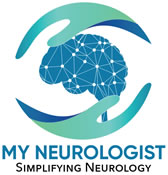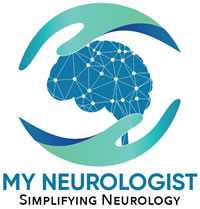Anxiety disorder is one of the mood disorders, or abnormality of mood.
How common is anxiety disorder?
It is probably the most common mood disorders affecting more than quarter of the general population. Looking at it differently, it is more common than migraine, which is quite a common problem.
What is the difference between just being anxious and the anxiety disorder?
All of us can be anxious or nervous about certain life or day-to-day situations. Feeling little bit anxious is our body’s normal defense mechanism, keeping us alert and awake in difficult situations. But if it is too much, happens too often, and lasts too long (more than six months), it may affect an individual’s day-to-day personal, school, social or work life. This is when it is labeled as anxiety disorder.
What is the cause of anxiety disorder?
Many people are anxious to start with, which means that the cause might be in their genes inherited from their parents. It is not uncommon to find symptoms of anxiety in some very young children, who might be the one born with this condition. There are multiple other reasons making people anxious and sometimes resulting in anxiety disorder. Common causes of anxiety are:
- Genetic: In this case one may also find it in other family members. These patients may start having this problem in childhood.
- Situational: Separation from loved ones, social situations (e.g., public speaking), financial issues, job related issues, political unrest, homelessness, lack of a home country (being refugee or immigrant), foster relationships, PTSD, fear, a child or loved one with an illness, and many other similar situations.
- Age related: It is common in very young, but even more so in elderly. All of us get anxious as we grow older, especially those who already have an underlying tendency.
- Gender: It is more common in women, and more so in transgender or not-well-defined gender.
- Associated illnesses: Chronic medical conditions, other psychological or psychiatric conditions
- Drug abuse: Alcohol and many other drugs
- Head injury
- Chronic pain
- Chronic medical or neurological conditions
What are the symptoms of anxiety disorder?
Common symptoms are feeling restless, nervous, on-edge, dizzy, confused, spacy, forgetful, irritable, muscle tension, neck pain, back pain, headaches, fearfulness, constant worry, fatigue, insomnia, palpitations, unsatisfying sleep, decreased libido, and a general feeling of being not well.
What is panic disorder?
This is a condition related to anxiety disorder. A severe anxiety attack may lead to panic or an attack of panic, as it quickly develops. In panic attack, symptoms of anxiety, as described above, are severe and develop rapidly. In addition, there usually is intense fear, heart racing or pounding feeling, shortness of breath, chest pressure, numbness and tingling, sweating, shaking, a feeling of doom and loss of control. A panic attack can be triggered by an anxiety provoking situation or there may not be an obvious trigger, e.g., it can wake a person from deep sleep.
How is panic disorder diagnosed?
It can be diagnosed based upon its typical presentation or symptoms. In initial stages, patients are most worried about a heart condition, only to find that the testing for heart problem is negative. In some patients, seizure disorder or complicated migraine may look like panic attack, but it can be differentiated by taking proper history of all symptoms.
What exactly causes symptoms of anxiety and panic?
General understanding is that it is caused by malfunction of brain’s electrochemical circuitry, which results in release of certain chemical or abnormal electrical signals resulting in multiple symptoms. This understanding is important for the patient to have, which helps to grasp the basis and justification of its treatments. The root cause of this problem is not in the heart, which many patients with panic disorder may think, the heart is affected due to this abnormal electro-chemical signaling.
What is the treatment for anxiety disorder?
For centuries, humans have been trying to treat this condition. Almost every imaginable type of traditional or non-traditional approach has been tried, some in fact quite harmful for the patient. Despite lack of evidence for many types of treatments or approaches taken by multiple types of “healers,” including preachers, medical professionals, and practitioners of alternative therapies, in societies all around the globe including in the USA, people continue to suffer, either from negative effects of some therapies or lack of any effect at all. People may try exercise, counseling, meditation, acupuncture, chiropractic manipulations, Yoga, Tai-chi, massage, sports, religious interventions, and many other forms of “alternate” healing practices. Being one of the most common medical conditions, there never is a shortage of clients with anxiety.
If not managed well, anxiety may create more psychological issues, such as depression and a permanent state of stressed relations and lost productivity for the patient and his or her family. With that said, not everyone with symptoms of anxiety requires a medicine. Many people with relatively mild condition may be able to cope with it using one or more of the above approaches. Less than half of patients with anxiety disorder take a medicine, though the need is probably much higher. While continue to suffer, there are many patients who resist taking a chemical agent or a drug, and then some who do not tolerate their side effects. But drugs are the most effective available treatment, especially for moderate and more severe form of anxiety disorder.
Psychotherapy or talk therapy can also help. It is best done by a trained professional, though most patients do not have proper access to it. A cognitive behavioral therapist can also help the patient to better cope with it. A combination of therapy and medicines is the best available approach.
Following are the type of medicines available for treatment of anxiety disorder:
- Benzodiazepines: Lorazepam (Ativan), clonazepam (Klonopin), diazepam (Valium), etc. They are particularly useful for panic disorder.
- SSRIs: Fluoxetine (Prozac), sertraline (Zoloft), paroxetine (Paxil), citalopram (Celexa), escitalopram (Lexapro), etc.
- SNRIs: Venlafaxine (Effexor), duloxetine (Cymbalta), desvenlafaxine (Pristiq), milnacipran (Savella), etc.
- Beta-blockers: Propranalol (Inderal)
- Anti-psychotics: Quetiapine (Seroquel), aripiprazole (Abilify), risperidone (Risperdal), olanzapine (Zyprexa), etc. This class of medicines are considered in patients with associated psychiatric or psychotic disorders.
- Miscellaneous: Buspirone (Buspar), gabapentin (Neurontin), etc.
- Non-conventional agents: In this category are products that have not been properly studied but are widely available. In most cases, enough data is not available to provide any formal recommendation. Examples are marijuana products, CBD, aromatherapy, or herbal teas. One should be careful as not every “natural” or “organic” product is risk free. In many cases, the risk is of losing money on buying something that does not work, false hope, wasted time, and continued suffering from untreated anxiety.
How is the decision made to find the right medicine for a patient?
This requires a formal evaluation with full history, examination and proper diagnosis, including diagnosis of any associated psychiatric or medical condition. Every patient is different and may require a unique approach. Many time the decision for the right medicine is based upon any other medical conditions. For example, for a patient with migraine and anxiety disorder a beta-blocker is a good choice. On the other hand, a patient with anxiety disorder and depression may benefit from an SSRI or an SNRI. And yet another with anxiety disorder and paranoid/delusional thinking may benefit from an anti-psychotic.
How long one must take a medicine to treat anxiety disorder?
Sometimes, anxiety is a temporary condition due to circumstances, in which case a medicine may not be needed for more than a few days to weeks. In many other cases, it is an anxiety disorder, as defined above, which can be a long-term or a life-long condition. Currently, there is no available cure for anxiety disorder. Length of treatment depends upon many factors, and in many cases, it is required on long-term or permanent basis.
Are drugs used for anxiety addictive?
Most drugs used for treatment of anxiety do not have habit forming tendency, except benzodiazepines, and may be gabapentin. Despite that, when prescribed properly, benzodiazepines are very useful drugs, especially for acute treatment of anxiety, and especially for treatment of panic attacks. Many patients require regular use of such drugs to avoid severe anxiety/panic behavior. They are avoided or should be used carefully in elderly, or in patients with tendency for addiction.
What should I do if I have anxiety disorder?
Seek medical help and talk to your PCP or a medical doctor. Many medical doctors are experienced to treat this condition. Due to the large number of patients with this condition, it is not practical for every patient to see a psychiatrist. Many are referred for psychotherapy and counseling, or the middle level psychiatric practitioners who can easily prescribe a medicine, if it is required. Some patients, especially those who may have other associated psychiatric disorders (such as bipolar disorder, psychotic disorder, etc.) may need to see a psychiatrist to have it properly diagnosed. Many patients with neurological disorders also suffer from anxiety disorder and may get treatment through their neurologist.
Where may I get more information about anxiety disorder?
American Psychiatric Association
National Institute of Mental Health


Leave a Reply
Your email is safe with us.
You must be logged in to post a comment.